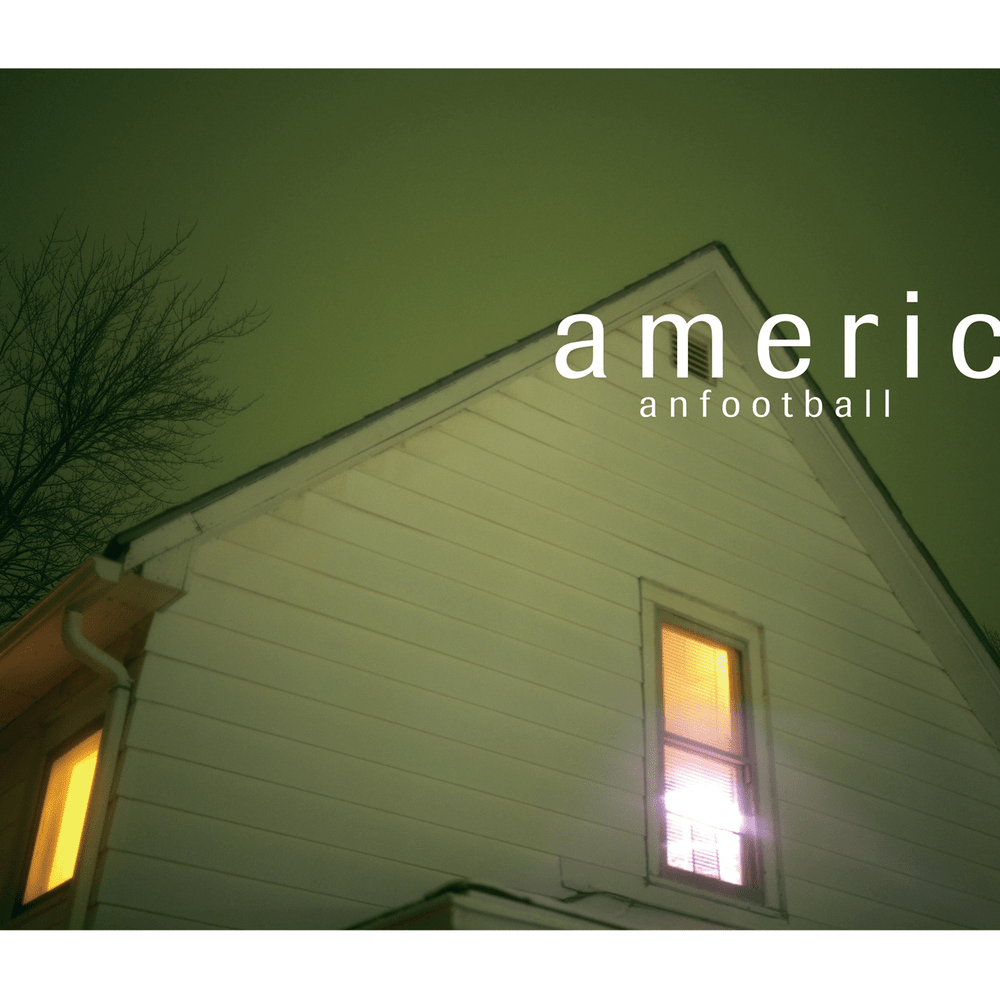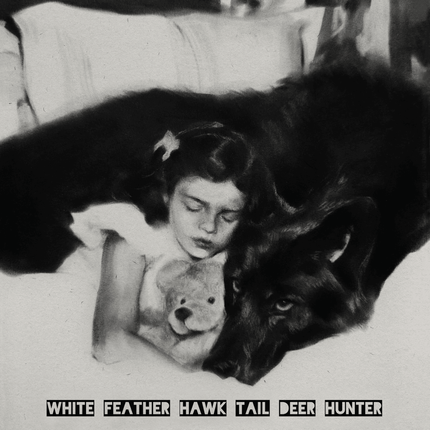It is not often that an unremarkable house on a random street in suburban Illinois achieves cult status. The modest white paint job and unassuming structure of 704 W. High St. suggest nothing about its connection to American Football, one of the most influential bands in the history of the indie rock, Midwest emo and math rock subgenres.
Twenty-five years ago on Sept. 14, American Football released its self-titled debut album with a photograph of that very house on its sleeve. Search up any of the music genres mentioned earlier on Google and the now-iconic cover art makes an inevitable appearance in anything from a Midwest emo Pinterest board to an article about the history of math rock.
At the time of its release, no one predicted the extent to which “American Football” would stand the test of time — not even the band themselves, who mutually broke up shortly after the album was recorded.
Cut to the present day, and American Football is back together, with two additional studio albums and a couple of live shows under their belts. The band will also release two special renditions of their self-titled debut album next month amidst their ongoing tour.
In the face of an unforeseen slow-burn success that so many other bands of their era never got to see, American Football has remained just as laid-back and nonchalant as the style of music that earned them their fame.
Get The Daily Illini in your inbox!
“It’s just dumb luck that this band caught on,” said lead vocalist and guitarist Mike Kinsella in an interview with NME.
Kinsella is partly right to acknowledge the incredible fortune that led to the album’s venerated standing among fans and critics today. The band makes no secret of the informal circumstances in which “American Football” was created — borrowed recording equipment, DIY indie production and sparse house shows — much of which took place in the isolating cornfields of the Champaign-Urbana area.
“We were just messing around with every dumb thing and we’d figure out what the tuning was later,” Kinsella said in an interview with Guitar World. “It just sounded cool. Then we played a bunch of really awkward shows with both of us staring at our tuners the whole time and then we broke up for 15 years!”
It is exactly this unpretentious context and bedroom-style music that makes “American Football” the perfect ode to youthful melancholy and confusion, suburban boredom and nostalgia that it is today.
The introductory track, “Never Meant,” sets the tone with the album’s characteristic sound: beautifully layered guitars, an intricate and textured drum beat and Kinsella’s candid and wistful vocal delivery.
Discordant instruments preface the music, evoking the scene of a band warming up at practice. A voice counts down, followed by a beat of silence, and the song launches into one of the album’s most recognizable guitar riffs.
“There were some things that were said that weren’t meant,” Kinsella said before the song’s instrumental climax.
He describes a tragically universal scenario — the desire to forget a relationship that did not work out, and the unshakeable feeling of regret that accompanies it.
“The Summer Ends” is comparatively toned down but thematically similar to its predecessor. Over some quiet and hesitant guitar and drums, Kinsella considers the discomfort of saying goodbye at the end of an era. His voice sounds uncertain as he ultimately decides to “just see what happens.”
It is also the first song on the album to utilize drummer Steve Lamos’ pensive, winding trumpet — an uncommon instrument for the emo soundscape American Football was working in at the time, but one that makes well-placed reappearances in the soft and dreamy “For Sure” as well as the final track, “The One with the Wurlitzer.”
“Honestly?” picks up the pace with an initially more melodic sound. Kinsella states the nature of what he’s feeling pretty matter-of-factly, singing, “honestly I can’t remember…/ All my teenage feelings and the meanings.” The last of the lyrics gives way to a bolder, rousing portion of the interplay between guitars that continues for the rest of the song before fading out.
“You Know I Should Be Leaving Soon” is one of two purely instrumental songs on “American Football” (the other being “The One with the Wurlitzer”), a barely noticeable choice on an album that can hardly be described as wordy. Each song contains at most a handful of lines, which forces the listener to cherish whatever words the band decides to express.
“But the Regrets Are Killing Me” and “Stay Home” rehash the pain of parting ways with someone. Both are two of the more sonically forgettable tracks on the album, a reminder of the album’s sometimes repetitive and dragged-out instrumentation of guitar over drums.
“I’ll See You When We’re Both Not So Emotional” sees its protagonist more frustrated, with an intentional instrumental angst that captures the messiness of navigating teenage emotions. Here, the band’s blunt yet frank lyricism shines.
“We’re two human beings/ Individually/ With inherent/ Interest in each other.” The song halts for a moment, then shifts into a slower, more deliberate sound. “I’ll see you when we’re both/ Not so emotional,” Kinsella vows.
The closing track, “The One with the Wurlitzer,” cleanses the album of any prior accusations of instrumental mundanity. The delicate pitch of the Wurlitzer piano, brassy yearnings of the trumpet and soft-spoken steadiness of the guitar and drums result in an achingly beautiful but painfully short outro.
It makes sense that American Football would finish their debut album in such an unembellished manner. The concept of ending with a showy musical bang doesn’t fit the then-intentions of a group of outcast college kids inspired by the quiet musings of the likes of Elliott Smith and Nick Drake.
“The record is just so unique and original sounding, even today,” said Matt Lunsford, founder and co-owner of the Urbana-based Polyvinyl Record Co. that manages American Football, to Vice.
“The songs are emotional, the lyrical content and the feel of the record works in sync,” Lunsford said. “I also feel that compared to other bands at the time, American Football was less aggressive. They really focused on their musicianship rather than aggression or intensity … You can feel how genuine of a project it is.”
It’s clear that “American Football” isn’t an album you listen to halfheartedly. While its themes of teenage heartbreak and aimlessness may seem distant to its now grown-up listeners, it never once feels juvenile. Instead, as each track unfolds with thoughtful musicality and honest lyricism, one can’t help but feel that they are sharing in something truly transformative of entire subgenres.









